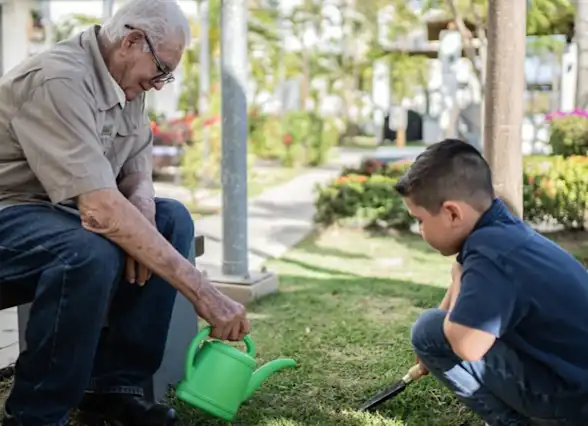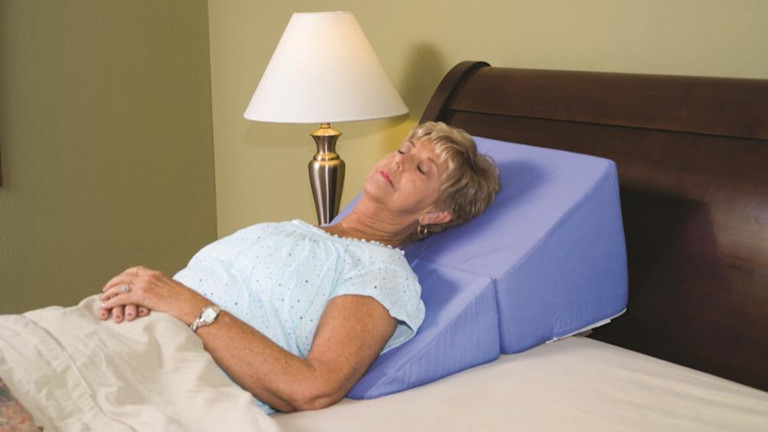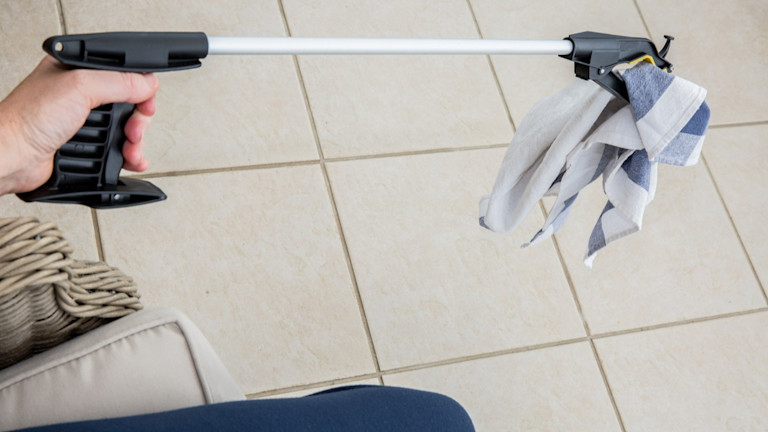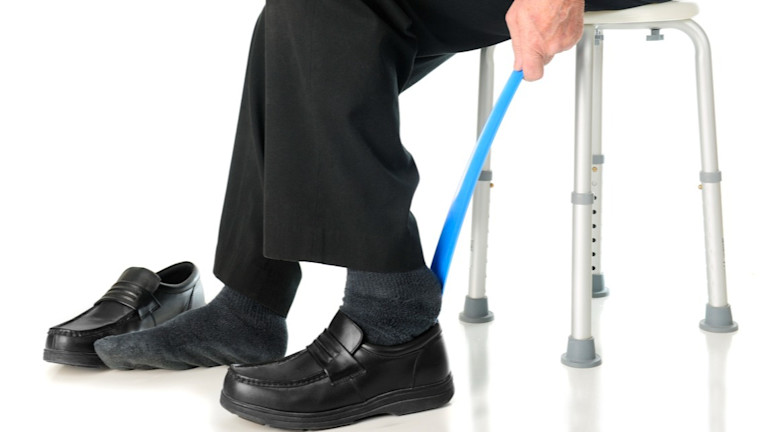COPD Requires Energy Conservation Techniques
Like LED lightbulbs, humans can also use energy more efficiently and still power their purpose - even last longer.
Get insurance benefits, legal documents, and medical records in one place

Helpful Highlights
Energy conservation techniques consider the time it takes to complete a task, the physical demands of that task, your loved one's limitations, and organization and prioritization.
Energy conservation techniques are useful for bathing, toileting and hygiene, dressing and undressing, meal prep and eating, daily chores, and more.
Many physical aides can assist with energy conservation and task accomplishment.
Energy Conservation
These energy-saving techniques can help your loved one use their energy wisely to reduce tiredness and maintain their independence. The more your loved one can do for themselves, the more self-esteem they will have, less depression, and in turn, reduce your worries and workload.
What can you do for your loved one?
Meals:
Do the cleaning, chopping, and packing together in advance
Prepare sandwiches and finger foods that can be ready in the refrigerator for light meals and snacks
Bigger meals can be prepared, cooked, plated, and covered - ready to be warmed up
Do not maintain food in heavy baking dishes or large pots/pans
Sit whenever possible during prep
Rest for 20-30 minutes after eating
Dressing:
Lay out clothes before bathing, or lay out clothes at night for the morning
Adapt or modify the home environment, especially the bathroom and bedroom (such as with grab bars and convenient seating)
Reorganize closets and shelves so your loved one does not have to reach above shoulders or below the waist (below knees at the lowest)
Toileting and hygiene:
Install grab bars, a shower chair, and perhaps even an elevated toilet seat
Ensure all items needed are in one location and easy to reach (toothbrush and toothpaste, washcloth and soap, hair brush, shaving items, etc.)
Whenever possible, have your loved one sit to perform hygiene
Outside support:
Look for community resources that can include meal delivery services, shopping services, community transportation, and more
ASK FOR HELP. Divide and conquer task lists with family, friends, and neighbors. Create social gatherings around jobs that need to be done (summer pitch-ins, holiday decorating). This will also help prevent your isolation and exhaustion as a caregiver.
Go to appointments and talk with your loved one's primary care provider and pulmonologist directly. Communicate subtle changes in activity level, sleep, appetite, toileting, and mentation (how they're thinking and engaging). Also, communicate changes in general demeanor (such as irritability) and physical well-being (experiencing lightheadedness or muscle cramping).
Discuss with their provider the benefits of home health care. Occupational Therapy can help with energy conservation techniques and adaptation recommendations. Physical Therapy can help with increasing strength and endurance, as well as improving balance. Speech therapy can help strengthen throat and chest muscles and improve lung capacity.
Explore:
Services and benefits covered by your loved one's health plan
Services available through private pay (hired personal care and homemaking)
Check into volunteer organizations for yard work and handyman jobs (such as church groups and high schools)
Remind your loved one that it’s okay to be short of breath. Sometimes, they may need encouragement to accept their current situation and make adjustments. Focus on controlling breathing and taking slow, deep breaths - especially when they start feeling anxious (as anxiety begets more shortness of breath, which causes more anxiety). Remind them that breathing gets easier as anxiety improves. You may want to breathe with them to demonstrate the breaths and help them feel at ease.
Move slowly during tasks that take a lot of effort and build in short rest periods. Assure your loved one that you are willing to wait for them to do things, even when it would take you half the time to just do it yourself. This assurance increases their feelings of independence and control, which is very important to you both. Avoid unnecessary tasks. Help them identify where they can cut some activities so they have more energy for the ones they enjoy most.
Plan activities so they can rest before and after them, as needed, especially while away from home. Plan for extended periods of rest at least once a day, though encourage them not to nap during that time, as it affects nightly sleep. They can rest without napping by having something easy to do such as reading, puzzles, or folding clothes. If their feet or ankles are swollen, put their feet up during rest.
Examples of items that may help:
A pillow wedge or electric bed to elevate their head and chest during sleep.

Reacher tools can be very helpful in retrieving (non-heavy) items from high or low places and come in a variety of grabbers.

Also, consider a long shoehorn.

RESOURCES
American College of Chest Physicians (ACCP) – COPD
American Lung Association (ALA) – COPD
American Thoracic Society (ATS) – COPD
COPD.com – Understanding COPD Stages & Progression
Global Allergy & Airways Patient Platform (GAAPP) – Four Stages of COPD
National Institutes of Health (NIH) Heart, Lung & Blood Institute – Lung Health Resources
UCSF Health - Tips for Conserving Your Energy
No content in this app, regardless of date, should ever be used as a substitute for direct medical advice from your doctor or other qualified clinician.
Get more support and guidance on insurance benefits, medical records and legal forms.
Helpful brings together your insurance benefits, legal documents, and medical records in one personalized place — so you always know what you have, and never have to search again.

Technology for Health Tasks. Mental Health for the Tough Stuff.
Helpful connects your medical records, insurance, and caregiving tasks automatically. And when you need more than logistics, a therapist is here to guide you.
In-Network and Covered
For Individuals, Couples and Families
HIPAA Compliant, Data Stays Private


Healthcare Tasks Simplified

From syncing records to spotting drug interactions, Helpful does the heavy lifting, turning complex health info into clear tasks and showing you benefits you can actually use, giving you clarity and control over your care.

In-Network Mental Health

Our licensed therapists are here to support you and your loved ones through stress, burnout, and life’s hardest moments, with an inclusive, compassionate approach that works with most insurance plans.

Create Legal Documents

Plan ahead by creating will, trusts, advance directives and more, that ensure your wishes are honored in the event you can’t speak for yourself -with Helpful guiding you every step of the way.